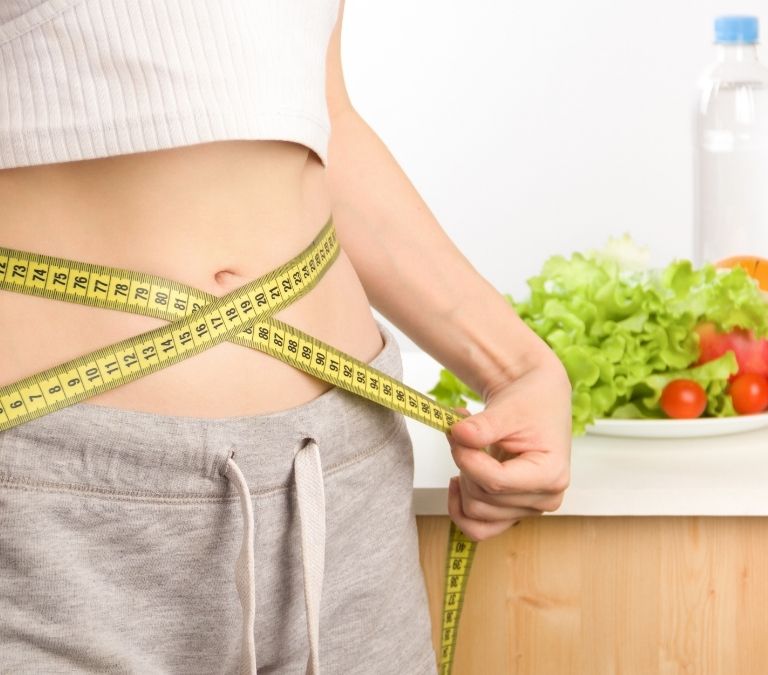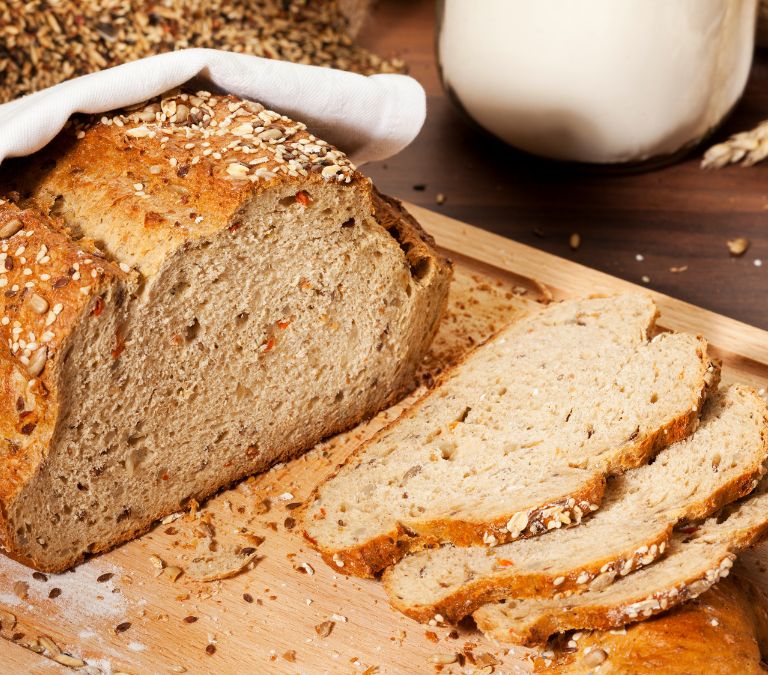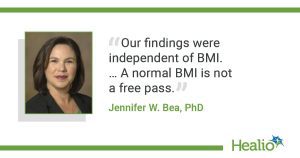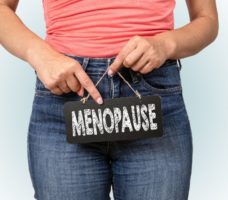When a woman stops menstruating, usually between the ages of 45 and 55, it is known as menopause. In the years preceding and following menopause, when the ovaries reduce the production of estrogen and progesterone hormones, women may suffer symptoms ranging from vaginal dryness to mood changes, joint pain, and sleeplessness.
Your body may undergo a variety of changes throughout menopause. Your periods might become heavy or irregular when your estrogen levels decline. You could also lose fertility. Other bodily changes you can notice include elevated blood pressure, altered cholesterol levels, which pose a risk of heart disease, and calcium loss from your bones, raising the risk of osteoporosis.
Weight gain, hot flashes, night sweats, frequent migraines, and joint problems are some of the more common perimenopause symptoms. These symptoms, mostly brought on by declining estrogen levels, might range from a few months to many years.
Changes in diet and lifestyle can alleviate symptoms for all women; this may entail using dietary supplements.
You eat fruits, vegetables, sprouted grains, nuts, and seeds on a raw food diet. Proper modes of preparation include blending, juicing, drying, fermenting, pressing, and soaking, which allows oils, nut butter, nut milk, cold-brewed beverages, and dried fruits to be consumed.
There are many benefits of eating raw food diet during menopause. Some of them are;

- Reduced inflammation
Of course, eating more vegetables has several health benefits. Since a raw-food diet is predominantly plant-based, it contains fresh, raw fruits and vegetables rich in antioxidants, minerals, vitamins, and fiber that assist in lowering inflammation in our bodies.
- Reduced weight gain:
Weight gain is common during the menopause transition, and this propensity persists throughout the post-menopausal stage, along with an increase in central fat distribution. According to high sensitivity C-reactive protein levels, post-menopausal women who lead sedentary lifestyles and consume a diet high in carbohydrates (more than 55 percent of total calories) are at an increased risk for cardiovascular disease. However, fruits and vegetables, which are low in fat and an excellent source of vitamins and antioxidants, can aid the body during menopause by reducing inflammation and maintaining healthy body weight.
Plants are rich in fiber, which helps you feel fuller for longer and reduces cravings in between meals since they digest slowly. These plants are also lower in calories, so this diet will probably promote weight loss, particularly if you completely give up processed meals.
- Plant-based diets are known to reduce the risk of developing chronic diseases.
For instance, a 2019 study discovered that consuming a plant-based diet was linked to decreased risks of cardiovascular disease, cardiovascular mortality, and even all-cause death in middle-aged people.
It is believed that cooking food renders its nutrients and natural enzymes inert, which is harmful because enzymes aid digestion and prevent chronic illness. In other words, cooking anything kills it.
- To treat various health conditions
A raw food diet helps treat headaches and allergies, enhance cognition and immunity, and treat diabetes and arthritis.
- Reduced menopausal symptoms
According to research, women who consume more fruits and vegetables may have fewer menopausal-related symptoms related to their physical and mental health.
- A raw food diet helps manage menopausal symptoms and improve quality of life.
Researchers questioned 400 women who had previously experienced menopause about their eating habits and how frequently they remembered having symptoms, including hot flashes, nocturnal sweats, muscle and joint pain, and bladder difficulties.
The research team also discovered three diverse eating habits: one group of women preferred a broad variety of fatty meals and snacks, while another consumed a lot of mayonnaise, oils, sweets, and desserts.
Afterward, women were divided into groups based on how closely they followed one of these three eating patterns. Those who consumed more greens in their diets discovered that menopause had a considerably lesser influence on their overall well-being, physical health, and mental health than women who consumed the fewest fruits and vegetables.
Women who consumed the fattiest foods and snacks, as opposed to those who consumed the most fruits and vegetables, were considerably more likely to have menopausal symptoms that reduced their quality of life and influenced their physical and mental health.
Current research points to the positive effects of low-fat, plant-based diets on body composition, but further research is required to corroborate these findings in post-menopausal women. The high-fat and dietary sugar patterns contain high levels of simple carbohydrates and unhealthy fats, especially saturated and trans fats, and relatively low fiber content. High fat and sugar can increase the levels of inflammatory biomarkers and body weight, both of which are related to menopausal symptoms.
- Alteration of estrogen metabolism
Raw foods like fruits and vegetables are high in fiber, which can alter estrogen metabolism and reduce the volatility of estrogen levels, all of which reduce the severity of menopausal symptoms:
According to researchers, factors such as obesity, inactivity, smoking, and alcohol increase the likelihood of developing more severe or frequent menopausal symptoms.
Several earlier studies have connected diets high in whole grains, fruits, and vegetables with fewer hot flashes and nocturnal sweats.
Research cannot demonstrate whether or how a person’s diet may affect menopausal symptoms. Researchers also point out that the study’s sample size of women is too small to generalize how nutrition can affect menopausal symptoms. However, it is undeniable that consuming fats and sweets in moderation might have additional health advantages.
If possible, women should limit or stay away from fast food, sweets, and sugary meals to incorporate more whole grains, fresh fruits, and vegetables, particularly colorful and leafy greens, into their diets; This would help prevent weight gain and some diseases that menopausal women are at a higher risk of.
Effective diet options for menopausal women

Foods suitable for menopausal women are listed below.
- Whole grains
In addition to fiber, whole grains are rich in B vitamins, including thiamine, niacin, riboflavin, and pantothenic acid.
Heart disease, cancer, and early mortality have all been linked to diets rich in whole grains.
According to a review, those who consumed three or more servings of whole grains daily had a 20–30% lower risk of developing heart disease and diabetes than those who consumed predominantly refined carbohydrates.
Consuming 4.7 grams of whole-grain fiber per day reduced the risk of early mortality by 17 percent in a study of over 11,000 post-menopausal women.
Brown rice, whole-wheat bread, barley, quinoa, Khorasan wheat, and rye are whole-grain foods. When determining whether packaged foods include mostly whole grains, look for “whole grain” stated as the first ingredient on the label.
- Veggies and fruits
Many fruits and vegetables are high in vitamins, minerals, fiber, and antioxidants. Because of this, American dietary recommendations advise putting fruits and vegetables on half of your plate.
In one-year research including more than 17,000 menopausal women, those who consumed more soy, vegetables, fruit, and fiber had a 19% lower incidence of hot flashes than those who claimed less. Researchers blamed the improvements in diet and weight loss for the decline.
For post-menopausal women, cruciferous veggies may be especially beneficial. According to one study, eating broccoli increased estrogen levels (the estrogen that prevents breast cancer) while lowering levels of an estrogen type associated with breast cancer.
- Berries
Berries could also be advantageous to menopausal women. Twenty-five grams of freeze-dried strawberry powder per day reduced blood pressure in an eight-week trial of 60 menopausal women compared to a control group.
Another eight-week trial including 91 middle-aged women found that those who took supplements containing 200 mg of grape seed extract had lower rates of sadness, better sleep, and fewer hot flashes.
- Food containing phytoestrogens
Phytoestrogens are substances found in food that function in your body, like estrogens.
Although there has been some debate about adding them to the diet, a current study indicates they may have health benefits, particularly for menopausal women.
Soybeans, chickpeas, peanuts, flax seeds, barley, grapes, cherries, plums, green and black tea, and many more foods naturally contain phytoestrogens.
According to a study of 21 soy trials, women who took soy and isoflavone supplements for at least four weeks had 14 percent greater estrogen levels than those who didn’t. Another evaluation of fifteen trials covering a period of three to twelve months discovered that phytoestrogens, including soy, isoflavone supplements, and red clover, reduced the frequency of hot flashes without causing any harmful side effects.
- Protein
Bone density and mass muscle reduction are associated with estrogen levels dropping after menopause; this is why menopausal women should consume extra protein. According to recommendations, women over 50 should consume 20–25 grams of high-quality protein at every meal, or 0.4–0.55 grams of protein per pound of body weight, daily.
For all people over 18, the Recommended Dietary Allowance (RDA) for protein in the US is 0.36 grams per pound (0.8 grams per kilogram), which is the bare minimum for health.
Protein accounts for 10-35 percent of daily calorie intake in the suggested macronutrient distribution.
The most prevalent protein in your body is collagen. In recent research, 131 post-menopausal women received 5 grams of collagen peptides daily; those who received a placebo powder had a considerably lower bone mineral density.
In major research over 50 years, consumption of dairy protein was associated with an 8 percent reduction in the incidence of hip fracture, whereas consumption of plant protein was associated with a 12 percent decrease.
Protein-rich foods include:
- Fish
- Dairy products
- Eggs
- Legumes
- Meat
You can also include protein powders in baked products or smoothies.

- Dairy Foods
Women’s risk of fractures may rise due to the fall in estrogen levels following menopause.
Calcium, phosphorus, potassium, magnesium, and vitamins D and K are all found in dairy products like milk, yogurt, and cheese and are crucial for maintaining healthy bones.
Nearly 750 post-menopausal women participated in the study, and those who consumed more dairy and animal protein had considerably stronger bone density than those who consumed less (8Trusted Source).
Dairy products may also enhance sleep. According to review research, menopausal women who ate meals high in the amino acid glycine, which is present in dairy products like milk and cheese, reported getting deeper sleep.
Additionally, some research suggests that dairy consumption lowers the incidence of premature menopause, which starts before age 45.
According to one study, women who consumed the most calcium and vitamin D found in cheese, and fortified milk had a 17 percent lower chance of experiencing early menopause.
- Healthy Fats
Women going through menopause may benefit from consuming healthy fats like omega-3 fatty acids.
According to a review of research including 483 menopausal women, the frequency of hot flashes and the intensity of night sweats were reduced by omega-3 supplements.
In another analysis of eight studies on the symptoms of menopause, only a small number of research validated the omega-3 fatty acid’s therapeutic effect on hot flashes.
Fatty fish like mackerel, salmon, and anchovies, as well as flax, chia, and hemp seeds, are among the richest foods in omega-3 fatty acids.
During menopause, it is important to consume lean meats that contain a lot of protein. Even better, opt for fish rather than beef. Fish is a mainstay of the traditional Mediterranean diet, which is widely believed to help people age more slowly because of the omega-3 fatty acids it contains.
- Calcium-rich foods
A matchbox-sized slice of cheese, a tiny yogurt, a pint of semi-skimmed milk, or a milk-based dish like custard or rice pudding.
- Vitamin D
Vitamin D is crucial for strong bones. Your skin produces it in reaction to sunshine. You should expose your skin to direct sunlight once or twice a day for around ten minutes, taking care not to burn.
Every adult should think about taking a daily vitamin D supplement with ten micrograms, especially in the fall and winter.
Vitamin D-containing foods include:
- Red meat
- Eggs
- Breakfast or cereals fortified with iron
- Certain mushrooms
- Oily fish
- Fortified plant beverages (such as soya or oat drinks).
Your risk of heart disease might rise during menopause. In addition to eating a heart-healthy diet, which can help to lower blood pressure and cholesterol levels, there are some very easy lifestyle changes you can make to lower the risk:
- Reduce your consumption of fatty meats.
- Switch to low-saturated oils and spreads.
- Choose low-fat dairy products.
- Grill your meal rather than deep-frying it to shift from saturated to unsaturated fats.
- Include at least one or two meals a week that are based on fish, nuts, beans, or pulses.
- Consume four to five pieces of unsalted nuts, seeds, and legumes per week.
- Consume fewer foods and beverages with refined sugar, such as sweets, cakes, and soft drinks.
- Limit your salty snack intake and avoid processed foods like ready-to-eat meals, soups, and cooking sauces. You may add flavor using various ingredients, including herbs and spices, when you cook at home.
- To get enough omega-3 fatty acids, aim for at least two servings of fish each week, one of which should be oily. Sardines, mackerel, salmon, trout, and herring in cans are examples of oily fish.
- Vitamins, minerals, fiber, and other plant components, including antioxidants that support heart health, are all present in fruit and vegetables. Aim to consume various colorful fruits and vegetables daily to meet the 5-a-day recommendation. Any kind can count (fresh, frozen, canned, dried, or juiced).
- When possible, switch to higher-fiber meals such as whole-grain bread, high-fiber morning cereals, and brown rice. A great source of fiber and heart-healthy foods are oats, whole grain bread, cereals, and pulses like lentils, chickpeas, and beans.
In addition, make sure you get a sufficient number of meals high in protein that include the amino acid tryptophan. You’ll find it in foods like turkey, cottage cheese, oats, and legumes, among other places.
The production of the neurotransmitter serotonin requires the amino acid tryptophan. Serotonin improves mood and may help with sleep and appetite, making you feel better about yourself.
Consuming food first thing in the morning and ensuring you don’t go too long between meals are other helpful things you can do to reduce the irritation you experience. Having fluctuating blood sugar levels can cause mood swings and irritation.
Foods and Substances to Avoid during Menopause

- Alcohol
Alcohol, like spicy food, causes your blood vessels to dilate, which can cause you to have hot flashes.
Additionally, regardless of whether or not you are menopausal, drinking alcohol makes it more difficult to maintain a restful state of sleep. If you are already having trouble sleeping because of the symptoms of menopause, drinking alcohol may make it much more difficult for you to obtain the amount of deep and restorative sleep you need to wake up feeling refreshed.
In general, the research on alcohol use is contradictory. It decreases the likelihood of some symptoms and long-term health problems while increasing the likelihood of others.
Researchers have concluded, based on the findings of over a hundred separate investigations, that there is a connection between drinking alcohol and breast cancer.
According to the NIH-AARP Diet and Health Study findings, daily consumption of one glass of alcohol can increase your risk of developing breast cancer.
If you decide to consume alcohol at all, do so in moderation.
- Processed foods.
Processed foods may be convenient to grab while you’re on the run or trying to satisfy hunger after a restless night, but they don’t have many positive health effects.
- High-fat Meals
High-fat meals can raise your chance of heart disease, which post-menopausal women are susceptible to.
A problem with weight gain frequently accompanies menopause. Therefore, monitoring the fat you consume is one strategy to lose weight. Consume fats from nutritious foods such as almonds, avocados, and olive oil.
- Hot drinks and beverages.
Hot flashes can be triggered by anything hot, not simply coffee and spicy food, as some belief; This involves having a drink, taking a shower, or taking a bath.
Think about the feeling of warmth that comes over you when you consume something hot, like hot soup or a hot beverage when you are feeling cold. It has an immediate heating effect. Because heat is already a problem during menopause, eating hot soup or drinking warm beverages might make the symptoms of menopause much more severe.
Do Menopausal Women Need Phytoestrogen?
Plant estrogens, often phytoestrogens, resemble human estrogen in many ways. They can begin to have modest estrogen-like effects if consumed often and in sufficient amounts, which is beneficial when estrogen levels fall.
These results could be adequate for some women to ease menopausal symptoms, notably hot flashes.
It is important to note the following:
- The benefits of plant estrogens can take two to three months to manifest
- Some women seem to respond more favorably to them than others, which may be due to variations in gut flora.
- Multiple daily doses of plant estrogens are more beneficial than a single high dosage.
- Incorporation of calcium-enriched soya products like milk, yogurts, soy, and linseed bread or edamame beans two to three times per day before turning to supplements as meals containing plant estrogens (such as soya and linseeds) is also heart-friendly.
Why do you need a healthy diet during menopause?
We begin to gradually lose calcium from our bones around the age of 35. Osteoporosis risk may be increased by an increase in the rate of estrogen loss during menopause.
HRT aids in preserving estrogen levels and safeguarding bone health. It’s crucial to have a balanced diet since several nutrients support strong bones. Eat various meals, including lots of fruit, vegetables, dairy products, and other calcium-rich foods.
Conclusion
A healthy diet is essential at any stage of life, but during menopause, your body needs extra consideration and patience. A change in diet can help you prevent future symptoms due to changes in metabolism and an increased risk of osteoporosis.
Overall, we are aware that menopausal changes might be confusing. However, eating a balanced meal that is still delicious is a great way to reduce symptoms. What you put on your plate can impact various things, including bone health and hot flashes. Before attempting any new diets or supplements, be sure to see your doctor or dietician.









